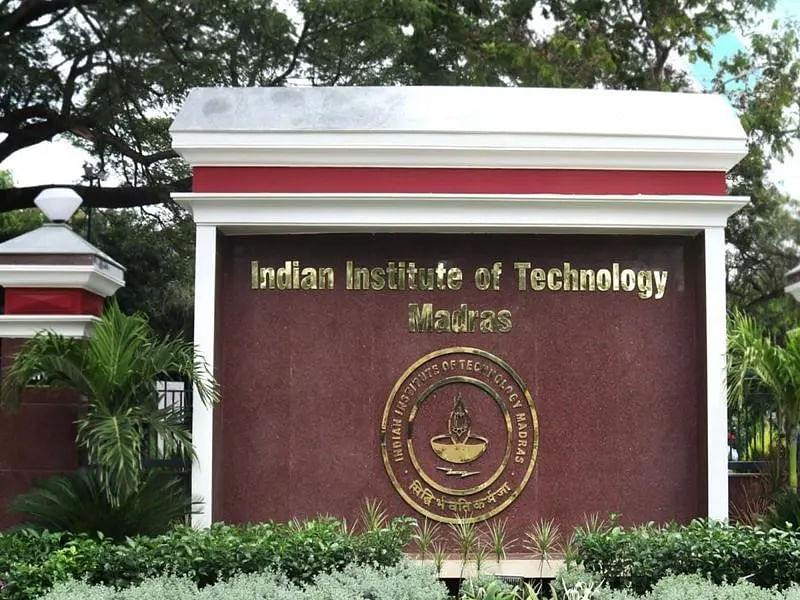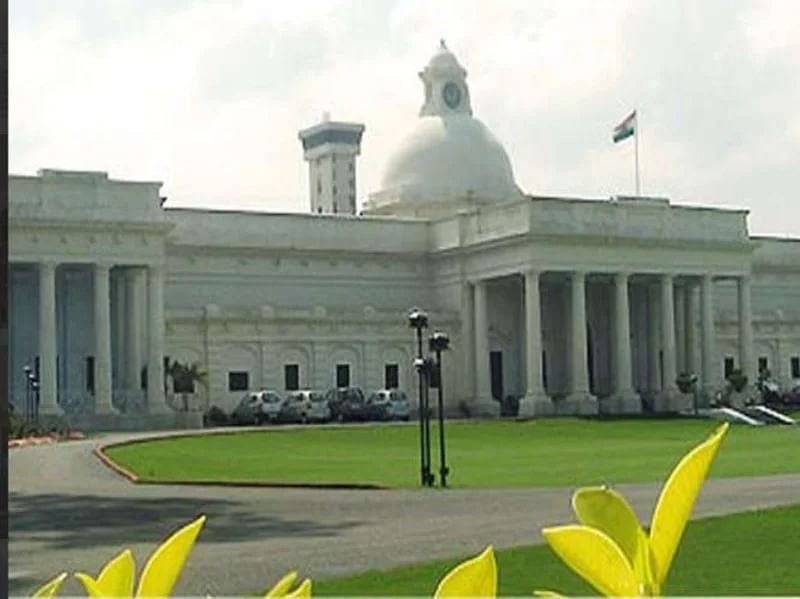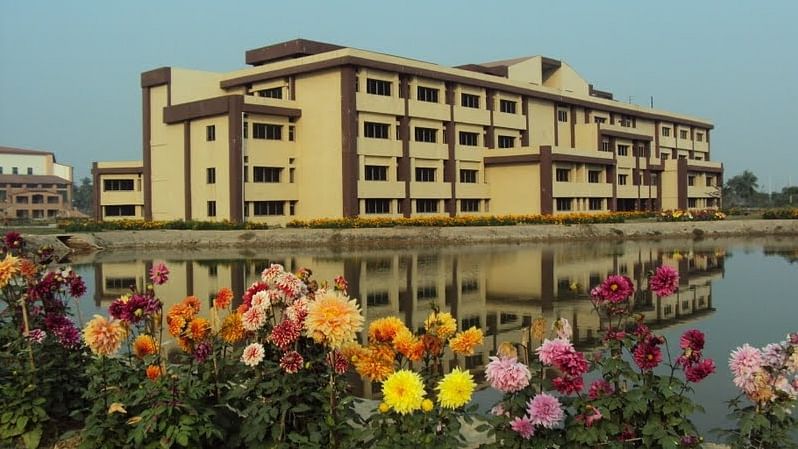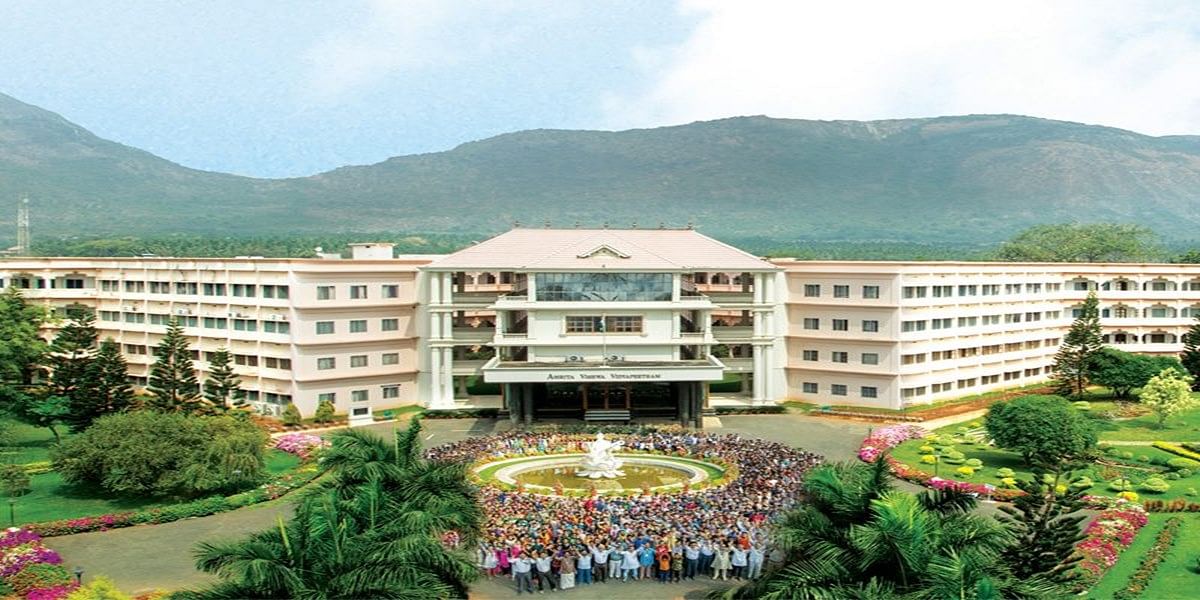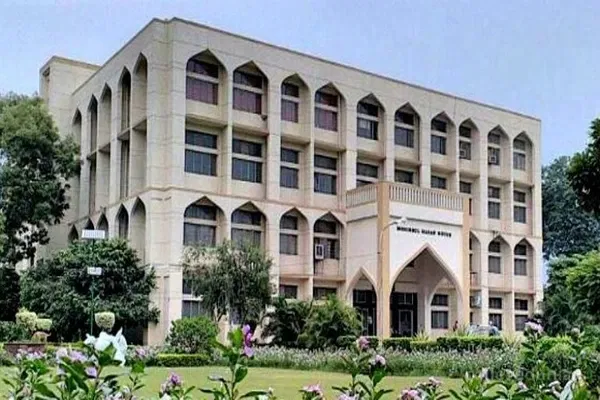BTech Mechanical Engineering: Course Details, Admission, Eligibility, Fees, Duration

BTech Mechanical Engineering is a 4-year undergraduate engineering program that is designed to provide students with a solid foundation in the principles and applications of mechanical systems and machinery. It deals with the design, development, construction, simulation, and control of machines.
As per the BTech in Mechanical Engineering eligibility criteria, candidates must clear their 10+2 with PCM (Physics, Chemistry, and Mathematics) as compulsory subjects with a minimum of 50% aggregate marks for the unreserved category and 45% for the SC/ST/PwD category from a recognized board. Apart from this, the candidate must also qualify for accepted entrance exams like JEE Main, JEE Advanced, BITSAT, etc.
The core B.Tech Mechanical Engineering subjects include Engineering Mechanics, Thermodynamics, Fluid Mechanics and Hydraulic Machinery, Machine Design, CAD/ CAM, Instrumentation and Measurement, etc. The BTech Mechanical Engineering fees range from INR 30,000 to 2,20,000 per year.
Table of Contents
- What is BTech Mechanical Engineering Course?
- B.Tech Mechanical Engineering Eligibility Criteria
- Why Choose a BTech in Mechanical Engineering Course?
- BTech Mechanical Engineering Admission Process
- BTech Mechanical Engineering Entrance Exam
- Top BTech Mechanical Engineering Colleges in India with Fees
- Types of BTech in Mechanical Engineering Courses
- BTech Mechanical Engineering Syllabus and Subjects
- BTech Mechanical Engineering College Comparison
- BTech Mechanical Engineering vs BE Mechanical Engineering
- Courses After BTech Mechanical Engineering
- Career Options After Bachelor of Technology in Mechanical Engineering Course
- Salary of a B.Tech Mechanical Engineering Graduate in India
- BTech Mechanical Engineering Scholarships
- Top 3 Cities to Pursue BTech Mechanical Engineering Course
- Skills Required for BTech Mechanical Engineering Graduates
BTech Mechanical Engineering Course Details
| Degree | Bachelors |
| Full Form | Bachelor of Technology in Mechanical Engineering |
| Duration | 4 Years |
| Age | The minimum age limit to enroll in the course is 17-18 years. |
| Subjects Required | Physics, Chemistry and Mathematics |
| Minimum Percentage | 50% marks for general category and 45% for SC/ST/PwD categories in 10+2 examinations. |
| Average Fees | INR 30,000-2,20,000 per year. |
| Average Salary | INR 2-6.1 LPA (Source: Ambition Box) |
| Employment Roles | Mechanical Engineer, Design Engineer, Mechanical Design Engineer, Project Engineer, Production Engineer, etc. |
| Top Recruiters | ONJC, Hero MotoCorp, Tata Motors, Larsen & Toubro (L&T), etc. |
What is BTech Mechanical Engineering Course?
The B.Tech Mechanical Engineering or Bachelor of Technology in Mechanical Engineering course focuses on the overall understanding and knowledge of how heavy machinery and tools function. The BTech Mechanical Engineering course duration is four years and falls under the umbrella of B.Tech courses.
The job scope of BTech Mechanical Engineering is vast as graduates can work in various sectors like construction, automotive, manufacturing, energy, etc. The average BTech Mechanical Engineering graduate salary is in the range of INR 2-6.1 LPA (Source: AmbitionBox).
B.Tech Mechanical Engineering Eligibility Criteria
The eligibility criteria for BTech in Mechanical Engineering require the candidate to fulfill a set of prerequisites such as merit score, age limit, subject requirements, entrance exam, etc. Listed below are the BTech Mechanical Engineering eligibility criteria:
- Students need to pass 10+2 with a minimum of 50% aggregate marks for the general category and 45% for the reserved category with PCM (Physics, Chemistry, and Mathematics) as compulsory subjects. The candidate should have a valid score in any one of the entrance exams such as JEE Main, JEE Advanced, BITSAT, etc., to get admitted for the course.
- Students who have a 3-year Diploma degree in the related field are eligible for lateral entry admissions.
- There is no age limit.
Why Choose a BTech in Mechanical Engineering Course?
The B.Tech Mechanical Engineering course can be the right choice for candidates who aim to gain advanced knowledge in fluid mechanics, thermodynamics, control, product design, etc. Here are some of the important pointers on why choosing a BTech Mechanical Engineering course can be the right choice:
- As per the Bureau of Labor Statistics, the employment of mechanical engineers is projected to grow 10% from 2022 to 2032.
- According to AmbitionBox, the average entry-level salary of a B.Tech Mechanical Engineer in India is INR 4.4 LPA, and after 3-5 + years of experience, the graduate can earn upto INR 8.5 LPA, which is dependent on the experience of the employee.
- The engineering career opportunities are expected to grow 7% nationwide by 2026, as per the Bureau of Labor Statistics.
BTech Mechanical Engineering Admission Process
The BTech Mechanical Engineering admission is based on the evaluation of merit and the entrance exam score of the candidate. Given below is the step-by-step admission process for B.Tech in Mechanical Engineering course:
- Step 1: The candidate needs to clear the entrance exam cut-off as per the university requirement.
- Step 2: The candidate needs to fill out the application form of their desired college available online or through offline mode.
- Step 3: They must appear for the counseling round and sit for GD/ PI rounds (if any).
- Step 4: Once the final merit list is published, the student needs to pay the admission fees and complete the document verification process.
Also, Check: B.Tech Admission Process
BTech Mechanical Engineering Entrance Exam
B.Tech Mechanical Engineering Entrance exam such as LPUNEST, JEE MAINS, WBJEE, etc. is conducted either at the national or institutional level for admission purposes. Tabulated below are some of the important entrance exams for BTech Mechanical Engineering along with the examination date and accepting colleges:
|
Entrance Exams |
Examination Date |
Accepting Colleges |
|
Jan 24 - Apr 15, 2024 |
NIT Trichy, NIT Rourkela, BHU Varanasi, etc. |
|
|
May 26, 2024 |
IIT Madras, IIT Delhi, IIT Bombay, etc. |
|
|
May 2024 (Tentative) |
Sharda University |
|
|
Apr 19 - Apr 30, 2024 |
VIT University |
|
|
April 28, 2024 |
Jadavpur University, IEM Kolkata, Guru Nanak Institute of Technology, etc. |
|
|
May 2024 (Tentative) |
Manipal Institute of Technology |
|
|
April - June 2024 (Tentative) |
SRM University |
|
|
Jan 20 - Feb 5, 2024 |
Lovely Professional University |
Top BTech Mechanical Engineering Colleges in India with Fees
The BTech Mechanical Engineering course is offered by private colleges and universities such as LPU, VIT-AP, SRM University, etc., and government colleges such as IIT Delhi, BHU Varanasi, NIT Kurukshetra, etc.
The annual B.Tech Mechanical Engineering fees in top colleges range from INR 30,000 to INR 2,20,000 per year.
Below listed are the best colleges for Bachelor of Technology in Mechanical Engineering in India along with fee details:
|
NIRF Ranking 2023 |
Name of the College |
Tuition Fees Per Year |
Admission Fees |
Miscellaneous Fees |
|
1 |
INR 2,20,000 |
- |
INR 27,615 |
|
|
2 |
INR 1,35,000 |
INR 8,150 |
INR 8,850 |
|
|
3 |
INR 1,19,000 |
- |
INR 34,500 |
|
|
4 |
INR 1,19,000 |
- |
INR 34,500 |
|
|
5 |
INR 2,00,000 |
- |
INR 52,500 |
|
|
6 |
INR 2,00,000 |
INR 5,700 |
INR 57,710 |
|
|
7 |
INR 2,00,000 |
INR 8,050 |
INR 60,000 |
|
|
8 |
INR 1,28,000 |
INR 17,000 |
INR 30,000 |
|
|
9 |
INR 1,24,000 |
INR 29,200 |
INR 20,750 |
|
|
10 |
INR 30,000 |
- |
- |
Top 10 City Wise BTech Mechanical Engineering Colleges in India
Below listed are the location-wise BTech Mechanical Engineering colleges in India with annual fees
|
Location |
Annual Fees |
|
INR 1,00,00 - 2,20,000 |
|
|
INR 1,50,000 - 2,00,000 |
|
|
INR 50,000 - 2,00,000 |
|
|
INR 1,00,000 - 2,00,000 |
|
|
INR 85,000 - 2,20,000 |
|
|
INR 30,000 - 2,20,000 |
|
|
INR 50,000 - 2,00,000 |
|
|
INR 60,000 - 2,00,000 |
|
|
INR 1,00,000 - 2,00,000 |
Types of BTech in Mechanical Engineering Courses
BTech in Mechanical Engineering courses are offered in full-time and integrated mode in various colleges and universities in India. Candidates can choose the course as per their convenience. Below is the B.Tech Mechanical Engineering course details:
|
Course Types |
Eligibility Criteria |
Duration |
|
Full-Time |
10+2 with a minimum of 50% marks for the general category and 5% relaxation for the reserved category + Entrance Exam Score + Counselling |
4 Years |
|
Integrated |
10+2 with a minimum of 50% marks for the general category and 45% marks for the reserved category + Entrance Exam Score |
5 Years |
Integrated BTech in Mechanical Engineering Course
Candidates can pursue B.Tech + M.Tech Mechanical Engineering as an integrated course after completion of 12th grade. Below listed are a few details about the B.Tech Mechanical Engineering integrated course:
- The course can be pursued from colleges like IIT Delhi, IIT Roorkee, Sharda University, etc.
- The course fee is between INR 1,70,000 - 14,00,000 per year.
- Students can also pursue a BTech Mechanical Engineering + MBA from Amity University as an integrated course.
BTech Mechanical Engineering Syllabus and Subjects
The B.Tech Mechanical Engineering first-year syllabus focuses on subjects like English, Mathematics, Environmental Science, Engineering Drawing, etc. The second-year syllabus deals with subjects such as Fluid Mechanics, Thermal Engineering, etc. whereas the third-year includes subjects like Heat Transfer, Mechatronics, Control Systems, etc.
Listed below is the year-wise BTech Mechanical Engineering syllabus:
|
SEMESTER I |
SEMESTER II |
|
Chemistry-I |
Basic Electrical and Electronics |
|
Environmental Science |
Chemistry - II |
|
Communication Skills |
Chemistry Laboratory |
|
Physics-I |
Physics - II |
|
Engineering Drawing |
English |
|
Introduction to Computing |
Workshop/ Physics Laboratory |
|
Maths-I |
Maths - II |
|
SEMESTER III |
SEMESTER IV |
|
Applied Electrical Engineering |
Fluid Mechanics |
|
Special Functions and Statistics |
Thermal Engineering |
|
Production Technology - I |
Mechanics of Machines |
|
Strength of Materials |
Materials Science and Technology |
|
Engineering Thermodynamics |
Measurements and Instrumentation |
|
Machine Drawing |
Manufacturing Technology |
|
Strength of Material Lab |
Manufacturing Laboratory |
|
SEMESTER V |
SEMESTER VI |
|
Heat Transfer |
Machine Design |
|
Mechatronics |
Turbomachines |
|
Analysis and Design of Machine |
Computer-Aided Design and Drafting |
|
Manufacturing Technology |
Control Systems |
|
Electrical Machines |
Turbomachines |
|
Numerical Methods |
Design of Mechanical Devices |
|
Dynamics of Machine Elements |
Introduction to Bioscience and Technology |
|
SEMESTER VII |
SEMESTER VIII |
|
Applied Thermodynamics |
Management Principles and Concepts |
|
Power Plant Engineering |
Elective - IV |
|
Engineering Economy and Financial Management |
Elective - V |
|
Elective - II |
Industrial Engineering and Operation Research |
|
Elective - III |
Project - II |
|
Summer Internship |
Resource Management TechniquesB.Te |
Read More: BTech Mechanical Engineering Syllabus and Subjects
BTech Mechanical Engineering College Comparison
The BTech Mechanical Engineering course is offered by top colleges in India to equip students with the skills required to become successful automotive engineers, construction engineers, etc. Below listed is the comparison of courses for the top 3 colleges offering B.Tech Mechanical Engineering courses:
|
College Name |
IIT Delhi |
NIT Trichy |
LPU |
|
Course Fee Per Year |
INR 1,35,000 |
INR 1,24,000 |
INR 2,80,000 |
|
Admission Process |
Entrance Exam Based - JEE Advanced |
Valid score in JEE Main |
Merit in LPUNEST |
|
Top Recruiters |
Air India, Microsoft, Goldman Sachs, Bajaj Auto, etc. |
Google, Honeywell, HP, HDFC Bank, Microsoft, Morgan Stanley, etc. |
Ashok Leyland, Mahindra, Tata Advanced Systems, Quest, Escorts, etc. |
|
Average Placement |
INR 7,60,000 |
INR 8,00,000 |
INR 6,72,000 |
BTech Mechanical Engineering vs BE Mechanical Engineering
BTech Mechanical Engineering course focuses on designing, manufacturing, and maintenance of mechanical systems, etc. whereas BE Mechanical Engineering deals with designing and manufacturing a product which require motion, energy, and force to function. Below is the course comparison between B.Tech in Mechanical Engineering and BE Mechanical Engineering.
|
Parameters |
BTech Mechanical Engineering |
BE Mechanical Engineering |
|
Full Form |
Bachelor of Technology in Mechanical Engineering |
Bachelors of Engineering in Mechanical Engineering |
|
Course Overview |
The course covers an extensive curriculum on the various factors of mechanical systems, like designing, manufacturing, and maintenance. |
This course focuses on designing and manufacturing a particular product that needs motion, force, and energy to function efficiently. |
|
Stream |
Engineering |
Engineering |
|
Course Duration |
4 Years |
4 Years |
|
Eligibility |
Students should clear 10+2 exams with a minimum of 50% marks in the Science stream. |
Students should clear 10+2 exams with a minimum of 50% marks in the Science stream. |
|
Entrance Exams |
JEE Main, JEE Advanced, WBJEE, BITSAT, etc. |
JEE Main, JEE Advanced, WBJEE, BITSAT, etc. |
|
Top Colleges |
IIT Delhi, NIT Trichy, LPU, etc. |
IIT Bombay, NIT Surathkal, BITS Pilani, etc. |
|
Course Fee Per Year |
INR 30,000 - 2,20,000 |
INR 25,000 - 2,00,000 |
|
Average Salary |
INR 2-6.1 LPA |
INR 5 LPA |
|
Job Roles |
Automobile Engineer, Design Engineer, Manufacturing Engineer, etc. |
Project Engineer, Production Engineer, Mechanical Design Engineer, etc. |
Read More: BE Mechanical Engineering
Courses After BTech Mechanical Engineering
B.Tech Mechanical Engineering graduates who aspire to pursue higher education have plenty of options to choose from, starting from short-term courses to post-graduation. They can also choose to do a diploma/ certification in CAD, pipe engineering, etc., or pursue full-time/part-time masters in technical or business fields.
If one aims to pursue an M.Tech in Mechanical Engineering, they can appear for entrance exams like GATE, OJEE, IPU CET, SRMJEEE PG, etc. Some of the other courses to pursue after BTech Mechanical Engineering are:
- MBA Operational Management
- MBA Project Management
- Ph.D. Mechanical Engineering
- M.Tech Manufacturing Engineering
- M.Tech Mechatronics
Career Options After Bachelor of Technology in Mechanical Engineering Course
After completing BTech Mechanical Engineering course, the graduates have several career options in the fields of production, assembly, R&D, etc. Candidates can work in public and private sectors based on their preference in roles such as automobile engineer, design engineer, manufacturing engineer, etc. Some of the best job designations for BTech Mechanical Engineering graduates are as follows:
|
Job Designations |
Job Description |
Hiring Company |
|
Mechanic Design Engineer |
Designs, develops, and tests mechanical components. |
Larsen & Toubro, HCLTech, Tech Mahindra, etc. |
|
Automobile Engineer |
Designs, develops, and manufactures vehicles as per the prescribed safety and efficiency standards. |
Tata Motors, Hero Motocorp, Mahindra & Mahindra, etc. |
|
Design Engineer |
Develops and modifies designs to increase efficiency or improve performance. |
Intel Corporation, Qualcomm, Tata Consultancy Services, etc. |
|
Research and Development Engineer |
Conducts extensive research to create new products and technologies. |
Aditya Birla Group, Boeing, Airbus, etc. |
|
Manufacturing Engineer |
Develops manufacturing processes by analyzing product requirements and testing methods. |
Tata Motors, Caterpillar, Ford Motor Company, etc. |
Read more: Career Options After BTech Mechanical Engineering
Top Recruiters for BTech Mechanical Engineering Graduates
BTech Mechanical Engineering graduates are recruited by private companies such as Bajaj Auto, Tata Motors, Larsen & Toubro, etc., and government companies such as Indian Railways, ONGC, ISRO, etc. Listed below are the top recruiters for B.Tech Mechanical Engineering graduates.
|
Bajaj Auto |
Tata Motors |
Hero MotoCorp |
|
Ford India |
Mahindra & Mahindra |
Larsen & Toubro (L&T) |
|
Indian Railways |
ONGC |
ISRO |
|
Indian Oil Corporation |
BHEL |
- |
Salary of a B.Tech Mechanical Engineering Graduate in India
BTech Mechanical Engineering salary in India ranges from INR 2-6.1 LPA [Source: AmbitionBox] based on the skill set and work experience. The entry level salary for graduates with 0-1 years of experience is in the range of INR 2-5 LPA [Source: PayScale] whereas the salary range after 3+ years of experience can start from INR 5 LPA and reach up to INR 11 LPA.
Listed below are some of the job roles for BTech Mechanical Engineering graduates along with the salary details:
|
Job Roles |
Average Entry-Level Salary |
Salary After 3 Years of Experience |
|
Mechanic Design Engineer |
INR 3.2-3.7 LPA |
INR 8-10.5 LPA |
|
Automobile Engineer |
INR 2-3 LPA |
INR 5-7 LPA |
|
Design Engineer |
INR 4.5 LPA |
INR 8-10 LPA |
|
Research and Development Engineer |
INR 2.5-3 LPA |
INR 7-10 LPA |
|
Manufacturing Engineer |
INR 4.5-5 LPA |
INR 7.5-9 LPA |
|
Aerospace Engineer |
INR 3.5-4 LPA |
INR 8-11 LPA |
|
Quality Control Engineer |
INR 3.2-4 LPA |
INR 7-9 LPA |
Read More: Salary of a BTech Mechanical Engineering Graduate
BTech Mechanical Engineering Scholarships
There are various government schemes and private institutions, which offer scholarships to students to pursue a B.Tech Mechanical Engineering course. Below is a list of a few scholarships available to graduates pursuing bachelor of technology courses:
|
Scholarships |
Eligibility Criteria |
Amount |
|
GE Foundation Scholarship |
2nd year engineering students of MIT Manipal, VIT University Vellore, IIT Gandhinagar, BITS Pilani, and Tezpur University Assam. |
INR 1,38,000 per year |
|
IET India Scholarship |
Candidates must qualify in all the selection rounds. |
INR 8,00,000 |
|
Merit-cum-Means based Scholarships |
Candidates must belong to any of the minority communities like Sikhs, Christians, Muslims, Jains, Parsis, etc. with family income less than INR 2.5 LPA. |
INR 10,000 per year in addition to the course fee. |
|
NTPC Scholarship Scheme |
Candidates must belong to ST/ SC/PWD category. |
INR 1,500 per month |
|
ONGC Scholarship |
Candidates must belong to the ST/ SC category with a family income less than INR 4.5 LPA. |
INR 1,500 per month |
Top 3 Cities to Pursue BTech Mechanical Engineering Course
Candidates can pursue a BTech in Mechanical Engineering from top colleges such as IIT Delhi, DTU, Anna University, JNTU, etc located in major cities such as Delhi, Chennai, Hyderabad. An overview of the top 3 cities to pursue a BTech Mechanical Engineering course based on top colleges, average living expense, top recruiters, and average starting salary is provided below:
| City | Top Colleges | Average Living Expense Per Month (INR) | Average Starting Salary (INR) | Top Recruiters |
| Delhi | IIT Delhi, Delhi Technological University, Indraprastha Institute of Information Technology, etc. | 15,000 - 25,000 | 75,000 - 2,90,000 per month | Siemens, Honeywell, Maruti Suzuki, etc. |
| Chennai | IIT Madras, Anna University, SRMIST Chennai, VIT Chennai, etc. | 12,000 - 20,000 | 20,000 - 7,20,000 per month | HCL Tech, Tata Consultancy Services, Larsen & Toubro, etc. |
| Hyderabad | IIT Hyderabad, IIIT Hyderabad, Jawaharlal Nehru Technological University, GITAM, etc. | 15,000 - 22,000 | 15,000 - 2,30,000 per month | Tata Consultancy Services, Tech Mahindra, MRF Tyres, etc. |
Skills Required for BTech Mechanical Engineering Graduates
Students need to enhance their programming skills, materials knowledge, critical thinking, etc. to become successful professionals. Listed below are some of the skills required for B.Tech Mechanical Engineering graduates:
- Programming Skills: It is important for mechanical engineers as they must use it to automate tasks, control machines, and develop simulations.
- Manufacturing Processes: This is required for mechanical engineering graduates to design for manufacturability, quality control, and cost efficiency.
- Analytical Skills: Mechanical engineers should be good analytical thinkers to analyze test results and adjust the design if required.
Top BTech Mechanical Engineering Colleges
Top Engineering Entrance Exams
BTech Mechanical Engineering Fee Structure
FAQs on BTech Mechanical Engineering
Q: Can I take direct admission for Mechanical Engineering?
Q: What can I do after completion of B.Tech Mechanical Engineering?
Q: Why is mechanical engineering considered a royal branch?
Q: What are the Career prospects like for Mechanical Engineers?
Q: What makes mechanical engineering interesting?
Q: What subjects and qualifications do I need to become a mechanical engineer?
